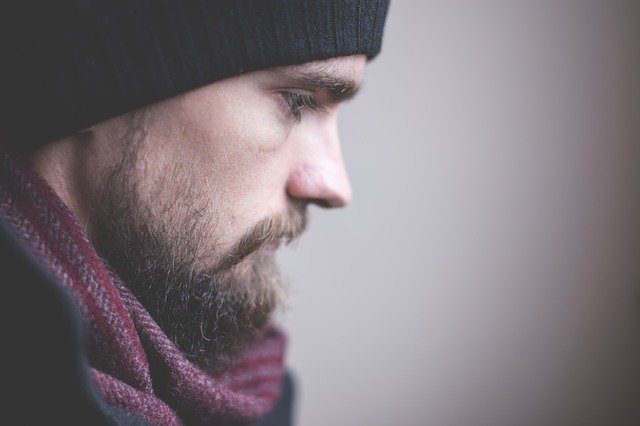As Christmas fast approaches and as government ministers rush to find ways of enabling as many people across the UK to enjoy as “normal” a break as possible, mental health experts are warning that support services that are available through the workplace should not be overlooked.
Separate statements released this week by the Employee Assistance Programme Association (EAPA) and workplace health specialist RedArc serve to remind employers and employees alike that services are available to help individuals who may be struggling with stress, loneliness and other mental health issues at this time of year.
The EAPA also today called for more recognition from Government on the role that EAPs can play in supporting mental health throughout often stressful winter months for many.
Andrew Kinder, vice chair of the EAPA, said that a winter health policy paper released by by the Government earlier this year – and available here – was an “important recognition” of the challenges of the darker months ahead.
But he said: “At the same time, the paper potentially misses out on a crucial point: that work, workplaces and EAPs are an essential platform to the nation’s mental wellbeing.”
Kinder said that Christmas, heralding the start of winter, will be “a welcome chance for a break for employees from all the alien stresses of 2020”.
He said it would be a respite from workplace infection worries, the downsides of working from home (WFH), “days filled with Zoom calls” and the threats of burnout. But he added that, as it is every year, Christmas is also still a challenging period given the strains on finances, on relationships, feelings of isolation and loneliness and the “sheer pressure of expecting every moment to be merry and bright”.
The said: “The biggest challenge signalled by Government and the NHS is awareness of mental health problems and a willingness and opportunity to get help. ONS figures suggest the numbers of referrals to the NHS for mental health conditions has been falling during the pandemic. It appears people don’t want to go to GPs or hospitals: they don’t want to waste NHS resources, or expose themselves to greater risk of Covid-19 infection.
“Instead there’s perhaps been a battening down of the hatches, similar to what happened during wartime. We stay safe, shut out our worries. The problem with this is that the ‘losses’ are felt most keenly when the war ends, in our case when the vaccine programme is well under way in springtime. The crisis might be over, but that’s when people see and feel the loss of family and friends; the loss of jobs and financial securities. There’s also going to be strong sense of loss of time, lost chances for keeping up social connections, for fulfilment of hopes and plans.”
Winder said that the proportion of the population having to deal with Covid-19 infection will “always be relatively small” compared with the numbers affected financially and/or psychologically.
He said: “Just as has been recognised with the economy, the fall-out from the pandemic in terms of psychological wellbeing will be long-term.
“Work plays a critical role in the mental health of every nation. Providing money yes, but it’s just as important in giving people a sense of purpose, status, structure and routine, as well as friendships, the feeling of being part of a community. That’s why the furlough scheme and the efforts of employers to keep as many people in work as possible have been invaluable, being flexible, offering WFH, making modifications to ensure workplaces are Covid-safe. EAPs have been – and will continue to be – an essential part of what work means and offers to so many employees.”
Separately, Christine Husbands, managing director of workplace and protection health services specialist RedArc, added that feelings of isolation and loneliness may be “exasperated “over the Christmas period and could escalate into symptoms of stress, anxiety or depression. She urged employees across the country to lean on support for mental health conditions, be it within their employee benefits or outside their organisation.
Husbands said that the pressures on the NHS are “widely-acknowledged” and so RedArc recommends that anyone who feels that their mental health is deteriorating over the festive period should investigate whether they can access professional support via a number of different routes.
She said that mental health support is often included within health and wellbeing benefits, including group protection and healthcare. Although some insurers only allow a referral at the point of a claim, many now allow self-referral at any time. Other organisations such as the Samaritans can also be a potential first port of call and not just in times of crisis.
Husbands said: “It’s vitally important for individuals to seek help when they first notice their mental health deteriorating, and avoid self-diagnosis or self-medication. By accessing professional mental health support, the individual can be assessed by a qualified mental health practitioner who will be not only be able to determine what interventions might be helpful, but who can also provide crucial reassurance and validation of what the individual is feeling.”
She added that even before the pandemic, Christmas could be a “really difficult” period for people who are on their own.
Husbands said: “There is huge pressure to be sociable and knowing that other people are together can make the feelings of isolation and loneliness even more acute at this time of year. Mental health support is available and can and should be accessed over the festive period by checking the details of what is available via employee benefits, insurance policies and other routes.”
The EAPA’s Winder said that Public Health England’s Better Health campaign is “all good in terms of advice and awareness”.
But he added: “In practice though, for the working population, there is easier to access support via employer-funded EAPs, providing more immediate availability of professional support online, by phone, and through video calls.”
